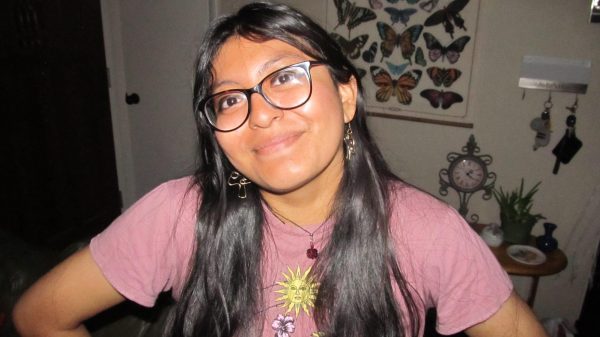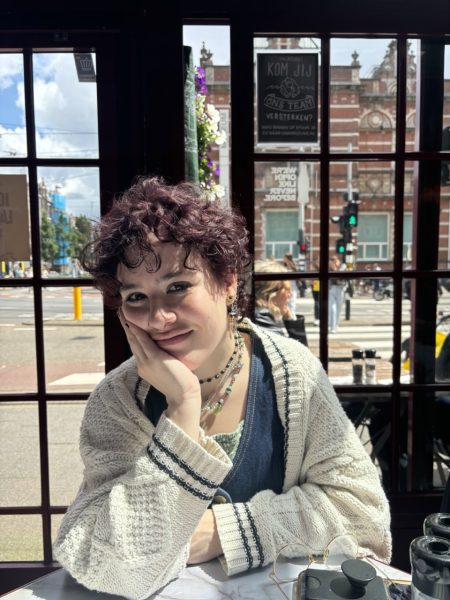Editor’s Note: This article contains a description of a historical event that mentions rape.
Black History Month, launched by Carter G. Woodson, was originally known as Negro History Week in 1926 to highlight Frederick Douglass’s efforts in abolishing slavery and to recognize Black heritage. Later, it evolved to Black History Month in 1976, and its mission to highlight and honor Black history has remained constant. However, due to escalating tensions between the federal government and the Black community, the effectiveness of Black History Month has been compromised. There is an attack happening on Black history, and it is due to the fragility and racism of current political leaders and people.
Black History Month has been limited to highlighting important figures and reviewing the “basics” of Black history. Yes, people learned about the Civil Rights Movement, know about Martin Luther King Jr. and understand that the 13th Amendment banned slavery, with the exception of prison labor. But many people do not know other important events that can never be forgotten, such as the 1921 Tulsa Race Massacre. The Greenwood District in Tulsa, Oklahoma, was home to Black Wall Street, a thriving Black community against all odds. It all came crashing down when Dick Rowland, a Black man, was accused of attempting to rape Sarah Page, a white woman. White people took matters into their own hands and over the course of two days laid siege on the community. What was once a thriving city full of life and future was destroyed by racial violence.
But school textbooks do not acknowledge the government’s failures to give reparations or invoke justice. Textbooks do not mention the various riots of 1964, such as the one in Harlem, that happened in the weeks after the Civil Rights Bill was signed. Violent act after violent act has been a pattern in history, and to pretend it is over because the Civil Rights Movement ended is rewriting history. It is not a coincidence that some of the darkest events in history were at the hands of the U.S. government and are not taught in the school system. Because why would the U.S. bring to light the atrocious things that it has done? Majority of U.S. residents cannot comprehend the thought that the U.S. has actively been on the wrong side of history, and the U.S. would like to keep it that way.
Black history is U.S. history. This country was built on the pain and involuntary servitude of Black people, and it would be insulting to deny that their contributions were for nothing. Yet there comes pushback from white people who attempt to discredit it, claiming that slavery, racism and discrimination are too “political” to discuss. Limiting the discussion of history, because it is uncomfortable, shows that they do not care about the truth; instead, they want to live in a bubble where it is in the past. The past is not over; it never left. Racism is prevalent in the country, at the hands of all generations.
Gerrymandering is done in order to weaken the votes of Black people. Neighborhoods and public schools are still experiencing segregation due to gentrification and budget cuts. There is a loophole in the 13th Amendment that allows prisoners to be forced into involuntary servitude, and the majority of workers are Black. These are real instances of discrimination occurring, but people turn a blind eye and say it no longer exists.
To put into perspective, Ruby Bridges was the first Black child to be integrated into a white elementary school at the age of six. She is currently 69 years old. Some people’s grandparents were alive to witness desegregation, and it is not always easy for older people to let go of prejudice and hatred. The argument that segregation and racism are non-existent is not factual, it is a blatant lie that has irreparable damages.
It is impossible to discuss Black History Month without mentioning current laws and motions that are responsible for the dilution of it. These attacks occur in both K-12 schools and higher education, with the majority happening in Republican states. For example, the “battle against critical race theory” is a witch hunt dedicated towards denying systemic racism, which is a real thing. Systemic racism is when a structure or system in place actively engages in practices that are unfair to minority groups. It helps explain how the current government and structures provide unequal opportunities. It goes alongside critical race theory, which explains that race is not a subgroup of humans, instead created to oppress people of color.
CRT shows that racism is embedded in everything of U.S. society, something that white people refuse to acknowledge. Many people immediately assume that CRT places blame on white people; however, it designates it to the current systems in place. With this belief, they assume that it is being critical of the country, something deeply “unpatriotic” and damaging to the pride of the U.S. In the era of fake news and misrepresented information, many representatives have taken this contorted definition and have lobbied to ban it from schools. There are 18 states that have issued laws banning CRT from being talked about in class, with nine more in the process.
Because of this, people are seeing the dilution of Black History Month and an increase of softer discussions about important figures, as well as general information of the Civil Rights Movement. The education of Black history is being denied due to U.S. residents failing to accept that the U.S. is not perfect. People should not have to censor their history. With resounding voices calling for Black history to be taught year-round, it is insane to see that the month created to uplift Black voices has been whitewashed.
Correction: A previous version of this article referred to “Black History Week.” For historical accuracy and respect for the original title “Negro History Week,” this has been changed.



